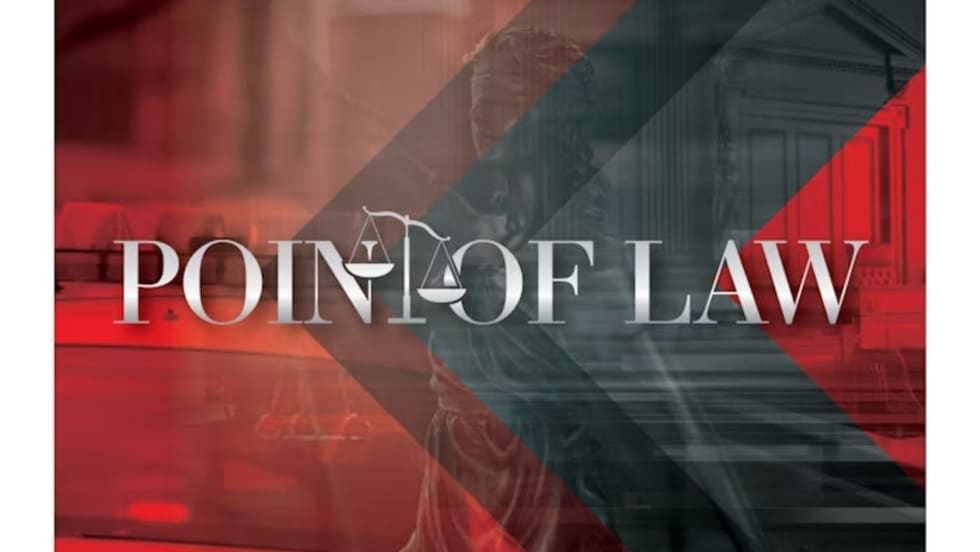A recent eighth circuit court of appeals case is very instructive on when you can seize an object without a warrant.
The case of United States v. Arredondo, 996 F.3d 903 (8th Cir. 2021) involves the plain view exception. The plain view exception authorizes an officer to seize an object without a warrant if the following criteria are met: (1) the officer lawfully arrived at the location from which he or she views the object; (2) the object’s “incriminating character” is “immediately apparent;” and (3) “the officer has a lawful right of access to the object itself.”
The case involves the seizure of drugs after a deputy from the Pennington County (SD) Sheriff’s Office had to use his phone to research if what he was holding was a controlled substance or not. As we all know researching the Internet for help at our job doesn’t always turn out in our favor. Let’s see if Deputy Eric Fenton had any luck with his search.
Facts
On Jan. 5, 2019, around 10 p.m., Deputy Fenton was dispatched to Dane Arredondo’s house after a neighbor reported hearing a woman screaming and crying inside the residence. When Deputy Fenton arrived, Dane’s brother, David, answered the door and let him into the house. David volunteered that his girlfriend, Ashley, who was “really drunk,” was down in the basement. In the basement, Deputy Fenton found Dane and Ashley sitting on a mattress on the floor.
After other officers arrived, Deputy Fenton accompanied Dane upstairs to retrieve his identification. At some point, David came upstairs, and Deputy Fenton directed him to sit on one of the couches. During that time Deputy Fenton happened to glance at a different couch behind David and saw some small clear medicine vials. Picking one up, Deputy Fenton asked, “What are these?” David responded that Dane is a paramedic “so he has a prescription”.
Deputy Fenton then grabbed another small vial off of the couch and held it up to read the label, identifying it as a Ketamine vial. Deputy Fenton asked David if Dane had a prescription for Ketamine. David indicated Deputy Fenton should look in a black box, which contained Dane’s paramedic license. Deputy Fenton, uncertain of the nature of the drugs, researched on his phone if any of the vials contained controlled substances. In addition, another officer told Deputy Fenton that he would have to investigate whether Dane could be charged with possession of a controlled substance, as Dane was a paramedic. After determining that at least some of the empty vials previously contained controlled substances, the officers placed the vials in evidence bags.
County authorities subsequently charged Dane with several drug-related offenses. Dane filed a motion to suppress the vials, arguing their warrantless seizure by the officers violated the Fourth Amendment. The district court agreed and suppressed the vials because their “incriminating character” was not immediately apparent; therefore, they were not subject to seizure under the plain view exception to the Fourth Amendment. The government appealed.
Eighth Circuit Opinion
In this case, even assuming that the first and third prongs of the plain view exception were satisfied, (the officer entered lawfully and had a right to the object) the court held the second prong was not met because the “incriminating character” of the vials was not “immediately apparent” to the deputy. For an item’s “incriminating character” to be “immediately apparent,” the officer (in this case, deputy) must have probable cause to associate that item with criminal activity.
The court concluded that Deputy Fenton possessed no such probable cause. When he came upon the small glass containers that looked similar to containers that hold common household items, such as contact lenses, essential oils, or medications for insulin or fertility, there was no basis for the deputy to immediately suspect contraband.
Whether the vials contained contraband was even less immediately apparent here, as they were observed on a dark couch in a poorly lit room in a residence where Deputy Fenton knew one of the occupants was a paramedic.
While Deputy Fenton believed that the vials laying on the couch “seem[ed] a little odd,” something seeming “a little odd” is usually a hunch and not probable cause.
In addition, although the officers witnessed strange behavior from Dane, David, and Ashley, the presence of bottles and cans strewn about the basement floor and upstairs living room of the residence gave the officers reason to believe that the three individuals inside the house were drunk, which is not a crime. When Deputy Fenton picked up the vials, held them higher to get a better view, and turned them to read what was written on the labels, he had no idea of the contents. At that moment, the vials had been searched and seized before Deputy Fenton had probable cause to believe they were an illegally possessed controlled substance.
The court also noted that there were no facts to suggest that Deputy Fenton had specialized expertise or training regarding narcotics, so his specific knowledge could not be a basis for finding probable cause.
In fact, after picking up and reading a vial, Deputy Fenton did not know whether Ketamine was even a controlled substance. He also used his phone to conduct research. Similarly, another officer told Deputy Fenton that he would have to look into whether Dane could be charged with possession of a controlled substance since Dane was a paramedic. Deputy Fenton had nothing more than a hunch that the vials could be incriminating, which is not enough for the plain view exception to apply.
Takeaways
As I have said in past articles (www.daiglelawgroup.com), you may have years of experience or a gut feeling that something is off, but that will not hold up in court.
If Deputy Fenton had a suspicion that something was off with the vials he found, he could have gotten a warrant or even called in an expert on controlled substances.
As the Court said here, Deputy Fenton had to look up on his phone whether what he had found was a controlled substance, and another officer wasn’t even sure if they could arrest a paramedic on those charges. It’s important to remember that looking something up on Google or another Internet search engine does not constitute probable cause.
In this situation the officers would have been better off documenting everything they found with pictures and writing a detailed report so that there was no tampering of evidence, and they could come back with an expert and a warrant.
Deputy Fenton felt that something was off, and it is often those gut feelings that can make a good investigator, but we also must follow properprotocol.
Eric Daigle is founder of Daigle Law Group, LLC, a firm that specializes in law enforcement operations. A former Connecticut State Police officer, Daigle focuses on civil rights actions, including police misconduct litigation. He is a legal advisor for police agencies across the country, a frequent contributor to POLICE, and a member of the POLICE Advisory Board. www.daiglelawgroup.com.






